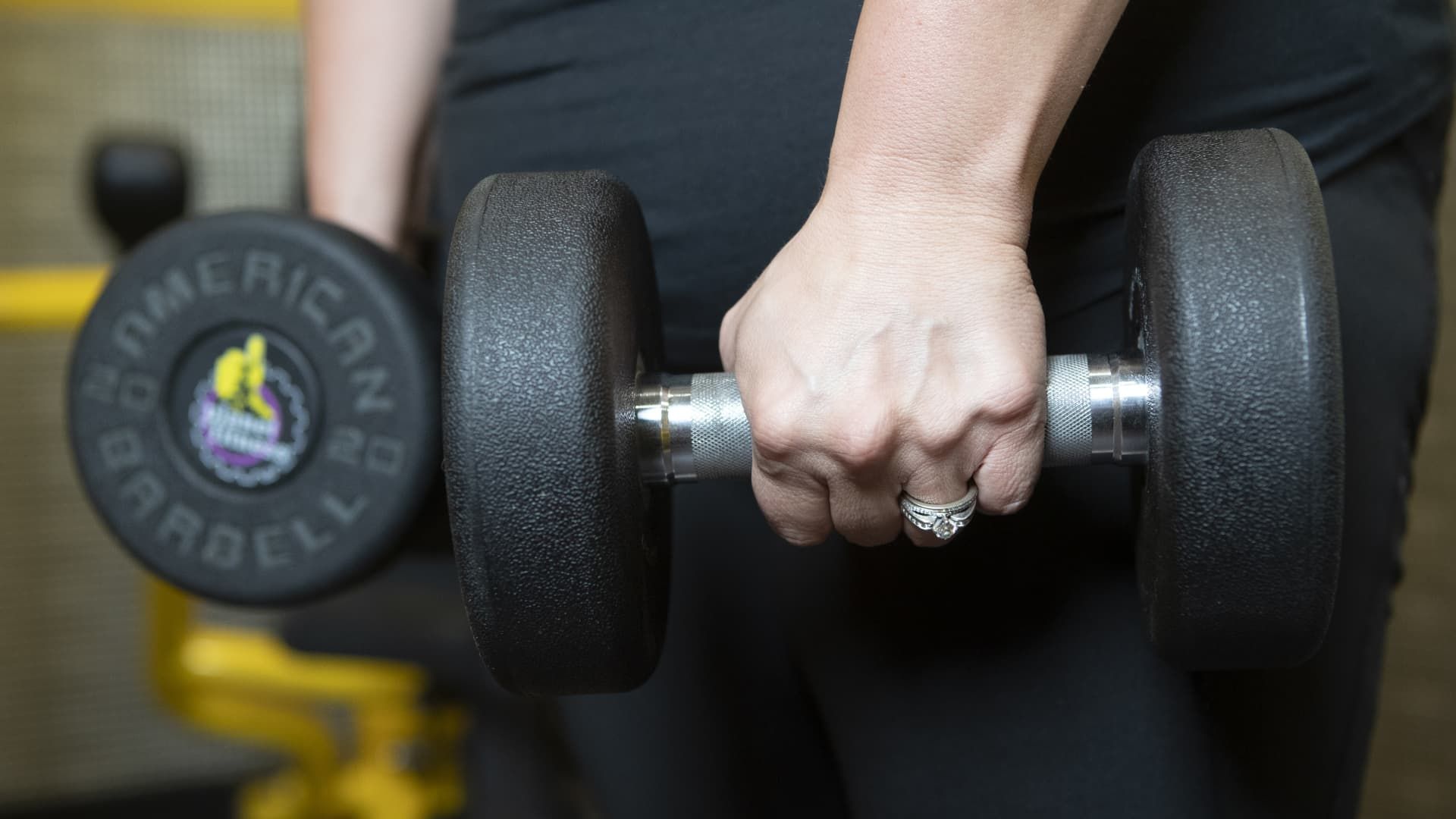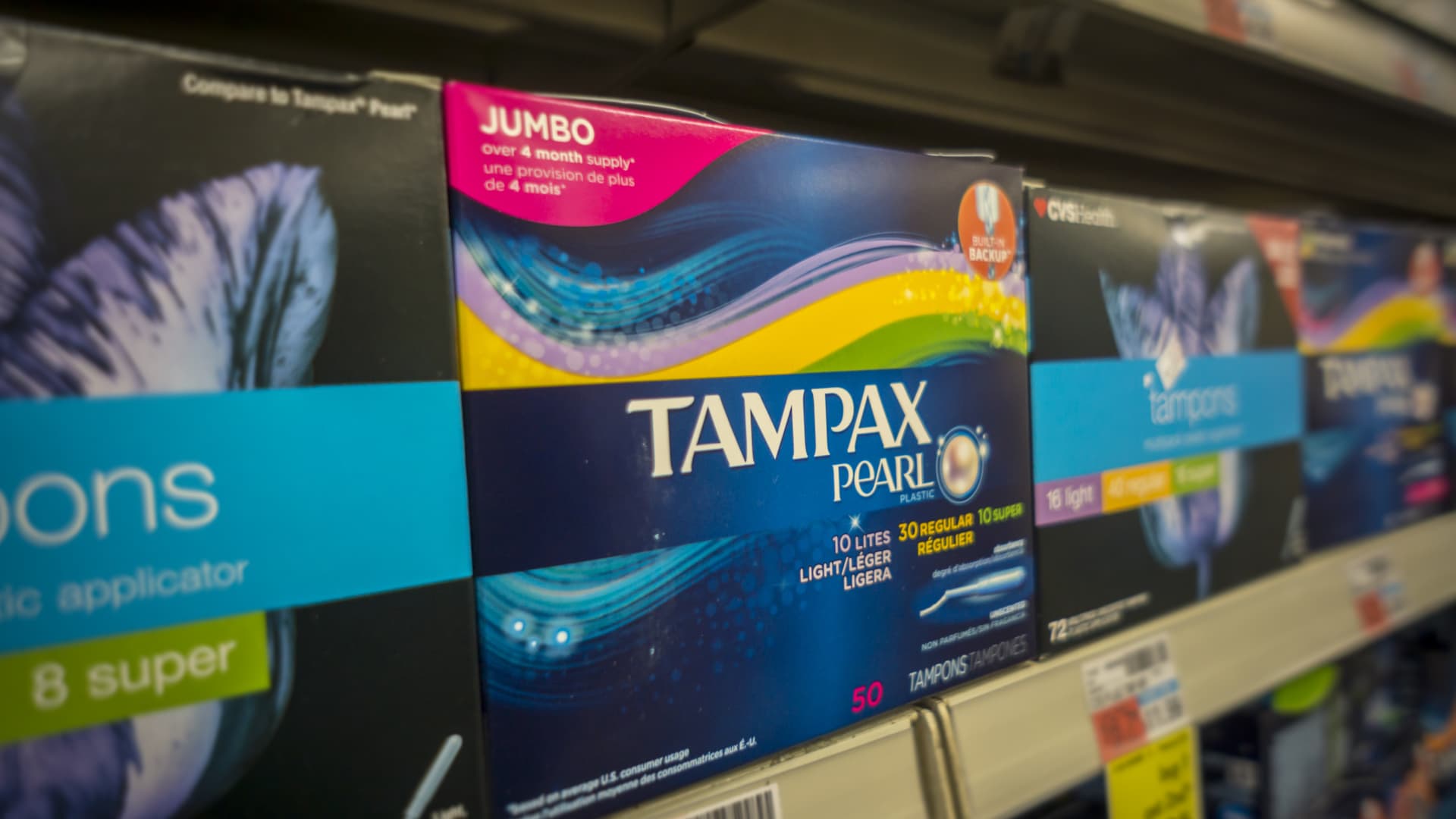Shauntil Cox lifts weights with the help of her trainer, Deano Troost, at Planet Fitness in New Caney, Texas, on September 19, 2023.
Jason Fochtman | Houston Chronicle | Hearst Newspapers | Getty Images
An increasing percentage of gym users are looking to build muscle, leading major fitness companies to refocus their efforts beyond cardio workouts.
In fact, building muscle was the number one goal for 2024, ahead of weight loss and general movement, according to Life Time's annual survey of 3,000 respondents.
Now, both Platoon and Planet Fitness are expanding their investments in strength.
Planet Fitness has changed its equipment mix, and earlier this month, Peloton launched trials for an app dedicated to strength-training plans called Peloton Strength+.
Finding that members over the past year consistently sought out more strength equipment and less cardio, Planet Fitness shifted its fitness offerings to meet the interests of especially its Gen Z customers, who make up 25% of the company’s base, according to the company’s third-quarter 2023 earnings conference call.
“Gen Z clearly seems to prefer strength and functional exercises over cardio,” said CFO Thomas Fitzgerald. “Treadmills are still used about the same, but machines like ellipticals and bikes are used much less.”
Planet Fitness beat revenue expectations in its second-quarter earnings, and an emphasis on strength training helped the company do so. Fitzgerald said strength equipment costs less than cardio equipment, and strength-training areas tend to have more space for more members to work out.
Miriam Fried, a New York City personal trainer specializing in strength training, has noticed a similar shift among women. She said many of her clients are women who previously did cardio or group fitness classes but are now interested in getting stronger.
“Over the last 10 years since I've been in the fitness industry, I would say it's definitely become a little bit more common for women to do strength training,” Fried said.
A Peloton exercise bike is seen after the opening bell rings for the company's initial public offering at the Nasdaq MarketSite in New York City, New York, September 26, 2019.
Shannon Stapleton | Reuters
Peloton is also testing whether strength training could be part of its path forward, as the company has faced growing concerns.
Peloton has previously said demand for its fitness equipment has been slow as consumers shy away from high-priced items. The company has also said its strength-training content, not its cycling or running classes, is the most popular class type for digital members and No. 2 among those who own Peloton hardware.
The company's new app, Peloton Strength+, is designed for strength training in the gym rather than in Peloton studios and will feature personalized, instructor-led programming, according to the company.
Peloton is likely to weigh in on that effort when the company reports earnings on Thursday.
Peloton’s new mobile strategy mirrors that of fitness app Ladder, which has been offering personalized strength training since 2020. CEO Greg Stewart said that while the company’s mobile workout subscription service launched amid the Covid-19 pandemic, it has seen its “most explosive” growth in recent years.
As a mobile product that focuses on strength training, Stewart said Ladder's users are mostly women and people who invest in gym memberships to access the equipment.
“Our app is 70% made up of women, so as strength training has become more popular and in-demand, we've certainly benefited from that,” Stewart said.
According to Stewart, 65% of Ladder users take the app to the gym every week to use the equipment. While during the pandemic the products were focused on consumers working out at home, he said gym-goers are now untapped potential in the industry.
“Most companies in our industry haven't really focused on that user, even though it's a huge audience, 65 million people with gym memberships in the US… It's a large and significant audience that's motivated, excited and financially committed to their fitness routine,” Stewart said.












